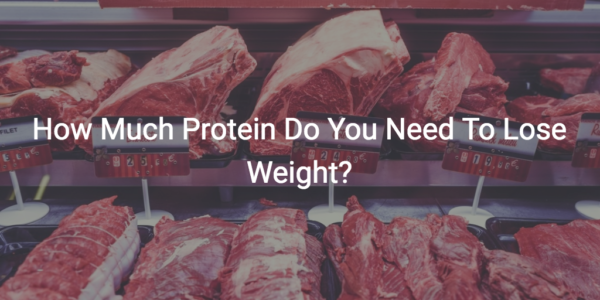Of all three macronutrients (protein, carbohydrates, and fat), protein is the most important when it comes to weight loss. That’s one of the main reasons why I write about it heavily on this site.
The other day I had a client ask me how much protein he needed to eat to lose weight. This is a great question and one I felt deserved more attention.
You see, the recommended daily intake is set at 56 grams per day for men and 46 grams per day for women. Though this is enough to prevent a protein deficiency, it’s far from the amount you need to achieve sustainable weight loss and get lean.
So, is there a specific amount that helps you lose weight? Well, let’s take a look at what some previous research has shown us.
A study done in 2011 looked at the effects of a high protein diet on fullness and the desire for late night snacking.
The researchers had 27 obese men randomized into 2 groups: a high-protein diet where protein was set at 25% of their total calories and a normal-protein diet where protein was set at 14% of their total calories. Each group was on an energy restricted diet where they ate 750 calories less than normal. The study lasted for a total of 12 weeks.
Afterward, the researchers found that high-protein group experienced more fullness and less late night snacking desire than the normal-protein group (1).
Another study done in 2005 wanted to look at protein’s effect on weight loss. They had a group of 19 participants consume 2 different diets. In the first one, protein was set at 15% of total calories. In the second diet, protein was set at 30% of total calories.
The study lasted a total of 12 weeks and the results were fascinating.
The high protein diet resulted in 441 less calories being consumed per day. Not only that, but the subjects lost 11 pounds (2).
What do these studies tell us? Well, it says 1 big thing about protein.
Protein helps fill you up more so than carbohydrates or fat. This results in less calories being consumed. And the most important factor needed to create weight loss is a caloric deficit.
One thing not talked about in these studies is that protein also helps build and maintain muscle mass. This is very important for sustaining your weight loss over the long haul. These are 2 very big benefits of eating more protein.
But back to our original question. How much protein do you need to lose weight?
Based on our current library of research, 25-30% of total daily calories should be plenty to create a caloric deficit and see weight loss.
Now you might be thinking, well how many calories do I need? The answer to this question varies from person to person but a simple equation I like to use is your bodyweight multiplied by 10-12.
If you have a sedentary job and aren’t very active during the week, you’ll be on the lower end of this scale. But, If you’re someone who has an active job and trains multiple days per week, you’ll be on the higher end.
To give you an example, let’s look at an office worker who weighs 200 pounds and hits the gym 3 times per week. I’d classify him in the middle of our 10-12 scale.
So our equation would look like this: 200 x 11 = 2200 calories per day.
Now that we have total daily calories, we multiply this number by .25 and .30. This is our daily protein calories.
2200 x .25 = 550 calories
2200 x .30 = 660 calories
Then, we take these numbers and divide by 4 since there are 4 calories per gram of protein.
550/4 = 137.5 grams
660/4 = 165 grams
So this person would need 135-165 grams of protein per day.
And that’s all there is to it!
Protein is responsible for a multitude of functions throughout the human body. One of the biggest is helping create and sustain weight loss.
If you’ve had trouble losing weight recently, it may be related to your protein intake. Do this simple equation to see how much you need each day. Once you incorporate more protein into your diet, you’ll be surprised with how simple weight can be.
References:
1. Leidy, HJ. et al. The effects of consuming frequent, higher protein meals on appetite and satiety during weight loss in overweight/obese men. Obesity (Silver Spring). 2011 Apr;19(4):818-24.
2. Weigle, DS. et al. A high-protein diet induces sustained reductions in appetite, ad libitum caloric intake, and body weight despite compensatory changes in diurnal plasma leptin and ghrelin concentrations. Am J Clin Nutr. July 2005
vol. 82 no. 1 41-48.






